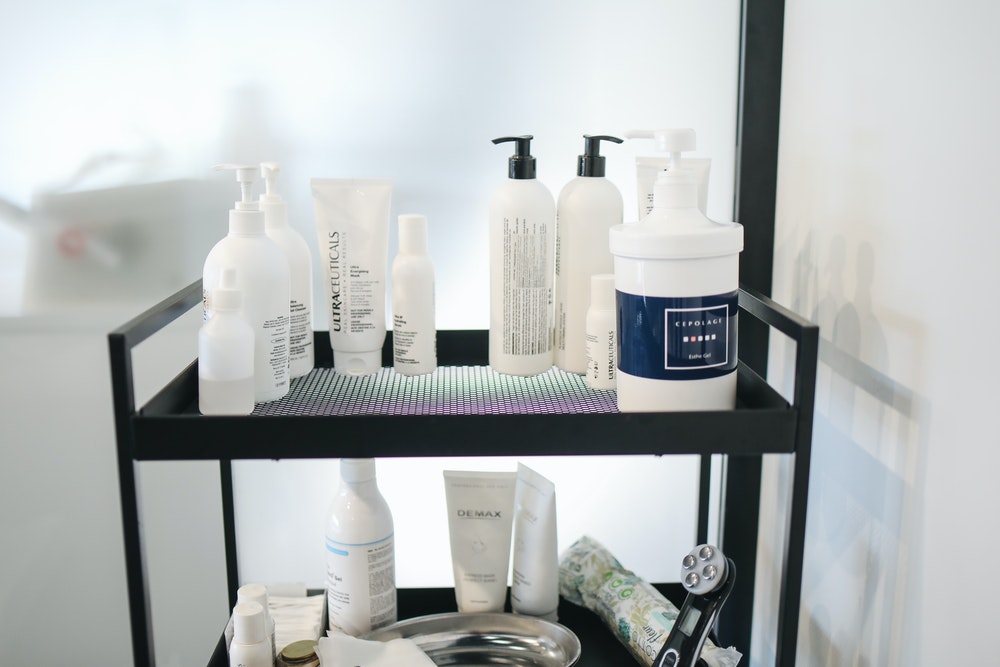Skincare works differently for different people. You want to take care of your skin and keep it youthful as long as possible. However, thinking you are doing everything that you’re supposed to do and still not seeing results or ended up aggravating your skin can sabotage your skin’s health.
If you have sensitive skin, using too many skincare products or the wrong kinds of products can damage your skin and lead to issues like acne, inflammation, and damaged skin barrier. Sensitive skin is also a common characteristic among people with skin conditions such as rosacea and eczema. Other factors that can contribute to having sensitive skin are genetics (people with fair skin or red hair are often more likely to have skin that becomes irritated easily), environmental factors, including your skincare routine and habits.
Do You Have Sensitive Skin?
Before moving forward to talking about the Dos and Don’ts of skincare, you need to determine if you come under the sensitive skin type radar. Unlike dry and oily skin, there are no standalone visible signs of sensitive skin. You can identify you have a sensitive skin type when:
- Even the most-accepted skincare products sting when you use them.
- Your skin flares up, resulting in redness and a burning sensation.
- Your skin feels uncomfortable applying even the most popular & recommended products.
- You develop small skin-coloured pimples all over or on most parts of your face.
- You get dry patches in summer and even the gentlest cleanser gives you pimples in winter.
In people with sensitive skin, skin cells cannot hold on to moisture as well as they should. When losing more moisture, skin can easily dry out and be more reactive to products.
If you experience these symptoms every time you apply a new product or switch things up in your skincare routine, it might be time to reevaluate what you are doing. Taking the time to give your skin a little extra attention doesn’t have to be difficult.
Here are some skincare mistakes damaging your skin- and how to avoid them for better skin health.
You’re Using Too Harsh Skincare Products
There is no one-size-fits-all product that works for “all skin types.” Using products which are not suited for your skin type and contain harsh ingredients can result in skin inflammation and acne. For people with sensitive skin, overexfoliation can also comprise the skin barrier to make symptoms worse. Using an exfoliating cleanser, even if it feels like you need these, is going to be too much for sensitive skin. Washing with a soap-based cleanser will also disrupt the skin barrier and irritate sensitive skin.
The fix: If you have sensitive skin, aim for gentle cleansing, and avoid using products which contain strong ingredients. Stick with a fragrance-free nonsoap cleanser and look for any of the following on the label: pH-neutral, nonsoap, hypoallergenic, gentle, or sensitive skin. Look for products and ingredients suitable for sensitive skin.
You’re Using Too Many Products
Along with using harsher products, using too many of them at a time can also exacerbate skin redness. The greater number of products you use, the greater number of ingredients there are, and the bigger the chance that something will cause a reaction in people with sensitive skin.
Additionally, using moisturizers with active ingredients such as retinols or alpha hydroxy acids without realizing it and doubling up with another cream can also lead to irritated skin.
The fix: Keep your skincare routine as minimal as possible and only build it up gradually if and when the products are taking well with your skin. Make sure you’re using a basic lightweight moisturizer, that there are no active ingredients that are designed to treat acne or that have an anti-aging purpose.
You’re Relying on ‘Natural’ Products
Natural is not always better. A lot of people with think ‘clean’ or ‘natural’ products are best for sensitive skin. But that’s not (always) true.
These natural or organic products can be ingredients that you can have allergic or irritant reactions to, just as you can for any other ingredient.
One of the touted elements found in quite a few natural products is essential oils- some essential oils like tea tree or lavender oil can do more harm than good for sensitive skin.
The fix: Stick with the products and brands that you know works for you and suits your skin. If you are tempted to test out the more organic options, always do a patch test before using them all over your face. Focus on products which are fragrance- and dye-free and hypoallergenic.
You’re Not Using a Retinoid
Retinoids are vitamin A derivatives. When applied to the skin, retinoids help increase the skin cells turnover and stimulate collagen production, revealing brighter skin underneath and reducing the appearance of wrinkles. However, retinoids have its side effects, namely redness and peeling, which often happens initially due to the increased turnover when the skin hasn’t become accustomed to treatment.
The fix: if you want to try retinoids and have sensitive skin, you can start out by using retinaldehyde, a precursor to a retinoid. A study shows that because skin enzymes need to first convert it into retinoic acid (a type of retinoid), retinaldehyde is not as strong and thus a more gentle wrinkle smoother. Use a small pea-sized amount of it, work up gradually, and remember to moisturize after.
Bukuchiol may be another option for you. A study published in February 2019 in the British Journal of Dermatology found that this ingredient performed similarly to retinol but produced less flaking and stinging.
You’re Using the Wrong Sunscreen
Using the wrong type of sunscreen can also wreak havoc on your skin. Chemical sunscreen which has ingredients such as oxybenzone and avobenzone and contributes to irritation for sensitive skin types.
The fix: Opt for more mineral-based sunscreen with ingredients like zinc oxide or titanium dioxide. Compared with chemical sunscreens, “these mineral ingredients tend to be less irritating and less reactive for people with sensitive skins.
Skincare if not a destination, it is a journey. These and similar other skincare mistakes can stop your skin from reaching its full potential. But taking the time to understand your skin and what it needs, you can achieve healthy and radiant skin.




